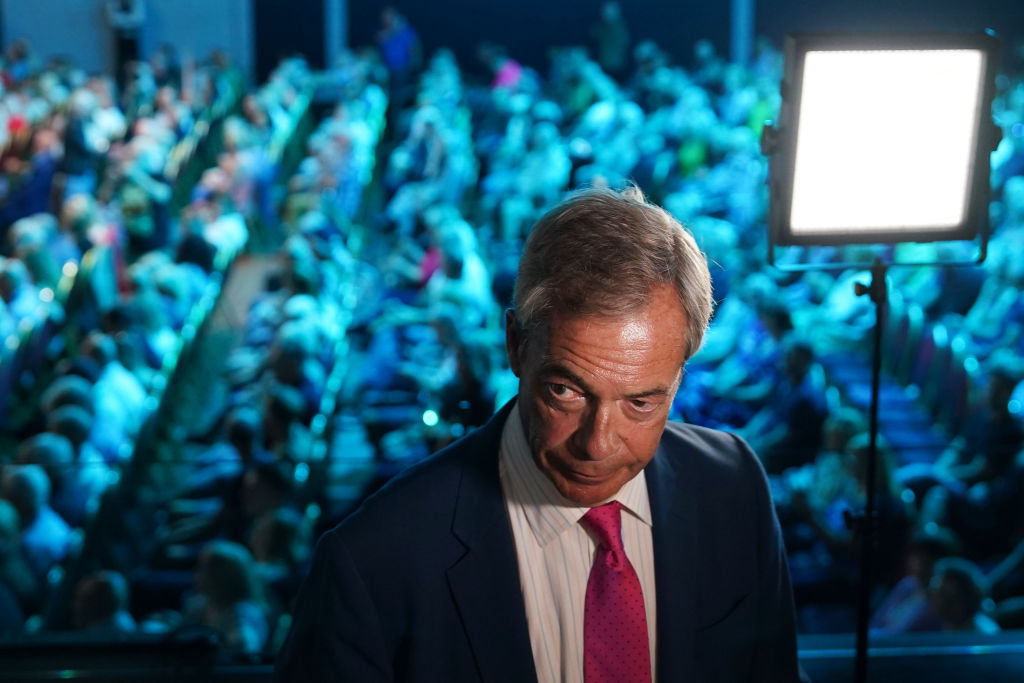This week it was revealed that MPs could face a crackdown on paid media appearances. The announcement came from the newly-formed Modernisation Committee, a Labour Party manifesto pledge intended to restore trust and drive up standards in the Commons. The committee’s memorandum agreed to look at tightening rules on second jobs, but also included specific focus on TV gigs: it will examine “whether paid outside engagements such as MP media appearances, journalism and speeches provide a benefit to the public or present a conflict of interest”.
The focus on media is noticeable. Prior to the election, the Financial Times reported that Labour intended to ban second jobs, but would allow paid broadcast work on a “case by case basis”. Now in power, the party appears to have changed its mind.
It’s not surprising, then, that the press regards this as an open war on Nigel Farage and Lee Anderson, both of whom are paid generously for shows on GB News. Before this announcement, the committee was already facing grumbles that it was a proxy for Keir Starmer’s government given that it is headed by Cabinet minister Lucy Powell. In true Starmer style, the committee intended to be part of a quiet revolution in bringing about boring but competent politics is now likely to find itself at the centre of a very public row.
While Labour may well win this battle, it’s questionable whether it’s worth even starting the war. As an MP, Farage already has a medium he seems set to master. On Tuesday he decried two-tier policing to a welcomed chorus of Labour Party jeers, a clip which then spread rapidly on social media. Farage’s appearance on GB News is therefore a largely inconsequential event, part of a dying media format watched by Red-Wall pensioners and hand-wringing Left-wing journalists.
Yet Labour may still make a martyr not just of Farage’s show, but of the medium itself. Today’s presenters, whether on Newsnight or GB News, have very little say over the day’s narrative. Sky, BBC and ITV still have a monopoly on television news viewing, but they exist in the tailwind of social media. There was a historic moment this week, when for the first time more adults got their news from social media than from TV. MPs who want to gain the old authority of broadcasting might be better off starting their own TikTok channel.
The decision will therefore be entirely counterintuitive, attracting unwanted political attention to an already unpopular government. It will be interpreted as petty political manoeuvring, fitting neatly inside the emerging narrative of a regime that is obsessed with rules and regulations as a means to fix national problems.
But it also reflects a naive, 20th-century mindset regarding the old media. Ahead of the election, calls for Ofcom to rein in GB News and other platforms allowing politicians to “moonlight” as presenters seemed part of a symbolic but desperate tribute act to the power of old broadcast media. That world is dead, and the members of the committee may be some of the last people who still believe in its influence. Those who work within the broadcasting establishment certainly don’t.
We should expect, with grim inevitability, the committee’s gaze to fall on social media as part of its crusade to clean up the Commons and restore public trust. Speaker Lindsay Hoyle, in a strangely partisan intervention, has already encouraged the Government to take such action. This may be just the start of Labour’s efforts to clean up the airwaves.











Join the discussion
Join like minded readers that support our journalism by becoming a paid subscriber
To join the discussion in the comments, become a paid subscriber.
Join like minded readers that support our journalism, read unlimited articles and enjoy other subscriber-only benefits.
Subscribe